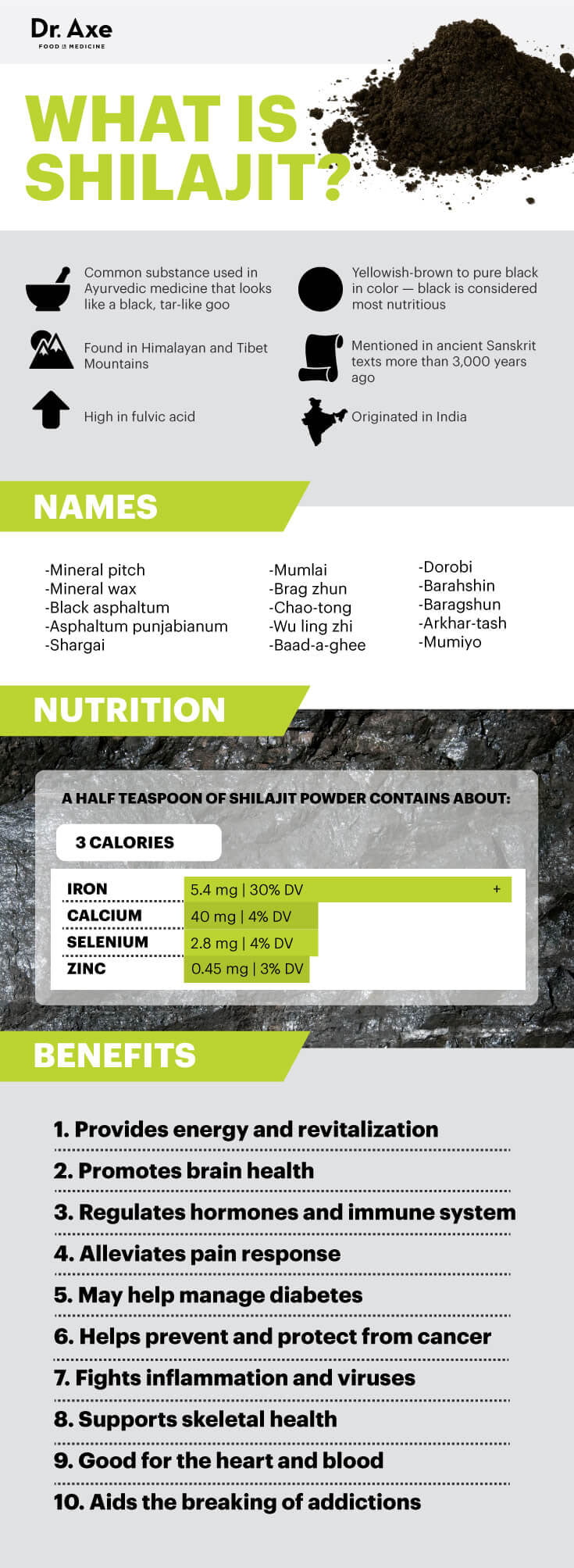What is Shilajit?
Shilajit resin is a tar-like substance found mainly in the Himalayan Mountains, Altai Mountains, Caucasus Mountains, and the Gilgit Baltistan Mountains of Pakistan. This organic matter is transformed into a rich mineral mass over time, which then oozes out of the rocks when the temperature rises.
Pure shilajit resin is a commonly used traditional medicine in Altai Mountains, Mongolia, Russia, Kasachstan, Iran and in Kirgistan. Shilajit preparations have been used with great success for preventing and treating infectious diseases.[1]
1. Shilajit for pain relief
Study results have suggested that shilajit has potential for the relief of orofacial pain (face and mouth pain). The study indicates that shilajit contains central nervous system sedatives.[2]
2. Shilajit and peptic ulcers
A study has found shilajit to be effective for the prevention of gastric ulcers as well as the reduction of the inflammation caused by gastric ulcers.[3]
3. Shilajit and addiction
A review of studies shows that shilajit alleviates withdrawal symptoms in patients undergoing opioid addiction treatment.[4]
Shilajit also reduces alcohol addiction and alleviates withdrawal symptoms in alcoholics.[5]
4. Shilajit and diabetes
Shilajit is the primary ingredient in Diabecon (D-400), an herbal formula that helps to reduce blood glucose levels.[6]
5. Shilajit and bone health
Research suggests that shilajit could be effective for treating osteoporosis as it helps to stimulate bone growth and inhibit the breakdown of bone tissue.[7]
6. Shilajit as an anti-viral
Study results have indicated that Shilajit is a natural source of antiviral substances that has broad, but specific, antiviral activity.[8]
7. Shilajit and Alzheimer’s
Shilajit has shown potential as a dietary supplement for the prevention and treatment of Alzheimer’s. The fulvic acid in shilajit inhibits the formation of tau fibrils that are associated with Alzheimer’s.[9][10]
8. Shilajit for energy
Shilajit helps boost energy by improving mitochondria function in the body. Mitochondria are the power generators of cells, and convert nutrients and oxygen into adenosine triphosphate, the energy carrying molecule of the cells. Shilajit has been successfully used for treating chronic fatigue syndrome due to its effect on mitochondrial function.[11]
9. Shilajit and cancer
Shilajit is toxic to several types of cancers, such as breast, lung, ovarian, colon and liver cancer.[12]
10. Shilajit and cardiovascular health
Shilajit has heart protective properties against damage resulting from the use of isoproterenol, a medication used for the treatment of bradycardia (slow heart rate).[13]

Image Source: Dr Axe